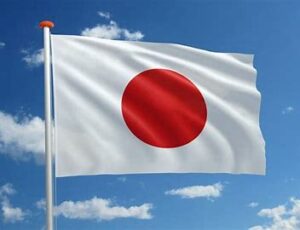
Australia Issues a Draft Law to Amend Global Minimum Tax Rules
On February 16, 2026, Australia issued the Taxation (Multinational—Global and Domestic Minimum Tax)
Amendment (2026 Measures No.1) Rules 2026, to amend its Global Minimum Tax Rules.
Once the top-up tax for the jurisdiction has been calculated, it is then allocated to the constituent entities in the jurisdiction that have net Pillar Two GloBE income (ie not entities that have Pillar Two GloBE losses) so that the charging provisions (ie the income inclusion rule or under-taxed payments rule) can correctly apply.
Note, that if all of the constituent entities in the jurisdiction are wholly owned and the UPE is applying an income inclusion rule, the allocation amongst constituent entities wouldn’t be required given the UPE would simply account for the top-up tax.
Article 5.2.4 of the OECD Model Rules provide that the allocation is based on each relevant constituent entity’s share of the total net Pillar Two GloBE income of the jurisdiction.
Example
In jurisdiction X:
Company A has net Pillar Two GloBE income of 5 million
Company B has net Pillar Two GloBE income of 10 million
Company C has net Pillar Two GloBE income of 20 million
Company D has a net Pillar Two GloBE loss of 5 million
Total jurisdictional top-up tax is 5 million. This is allocated as follows:
Company A = 5 million * 5/35 = 714,286
Company B = 5 million * 10/35 =1,428,571
Company C = 5 million * 20/35 =2,857,143
Company D = 0

On February 16, 2026, Australia issued the Taxation (Multinational—Global and Domestic Minimum Tax)
Amendment (2026 Measures No.1) Rules 2026, to amend its Global Minimum Tax Rules.

On February 13, 2026, Poland issued a draft law to amend its Global Minimum Tax Law for the December 2023, June 2024 and January 2025 OECD Administrative Guidance. This also includes QDMTT changes, including the introduction of a Local Financial Accounting Standard rule.

On February 12, 2026, Cabinet Resolution No. (2) of 2026, was published in the Official Gazette to provide for the detailed implementation of the IIR and QDMTT in Qatar.

On February 6, 2026, the Italian Revenue Agency approved the model for the GloBE tax Return. This is a consolidated form with information on the calculation of top-up tax under the IIR, UTPR and QDMTT.

On January 29, 2026, Canada’s Department of Finance released draft GMTA technical amendments introducing an elective private investment entity de-consolidation rule for Pillar Two/GMTA purposes.

On January 30, 2026, Japan’s National Tax Agency issued a law implementation circular clarifying certain aspects of its UTPR and QDMTT.

In January 2026, Canada issued the filing procedures for the GIR, GMT Return and the Double Filing Relief Notification.

On January 19, 2026, South Korea issued a Draft Law to amend the Enforcement Decree to the International Tax Adjustment Act. This provides for detailed provisions for the application of the QDMTT and will also extend the Transitional CbCR Safe Harbour by 1 year (as provided in the January 2026 OECD Side-by-Side Package).

On January 19, 2026, the Hong Kong Inland Revenue Department opened its E-filing portal for the submission of Top-Up Tax Notifications
| Cookie | Duration | Description |
|---|---|---|
| cookielawinfo-checkbox-analytics | 11 months | This cookie is set by GDPR Cookie Consent plugin. The cookie is used to store the user consent for the cookies in the category "Analytics". |
| cookielawinfo-checkbox-functional | 11 months | The cookie is set by GDPR cookie consent to record the user consent for the cookies in the category "Functional". |
| cookielawinfo-checkbox-necessary | 11 months | This cookie is set by GDPR Cookie Consent plugin. The cookies is used to store the user consent for the cookies in the category "Necessary". |
| cookielawinfo-checkbox-others | 11 months | This cookie is set by GDPR Cookie Consent plugin. The cookie is used to store the user consent for the cookies in the category "Other. |
| cookielawinfo-checkbox-performance | 11 months | This cookie is set by GDPR Cookie Consent plugin. The cookie is used to store the user consent for the cookies in the category "Performance". |
| viewed_cookie_policy | 11 months | The cookie is set by the GDPR Cookie Consent plugin and is used to store whether or not user has consented to the use of cookies. It does not store any personal data. |